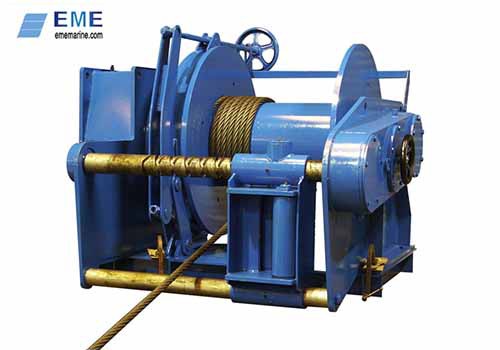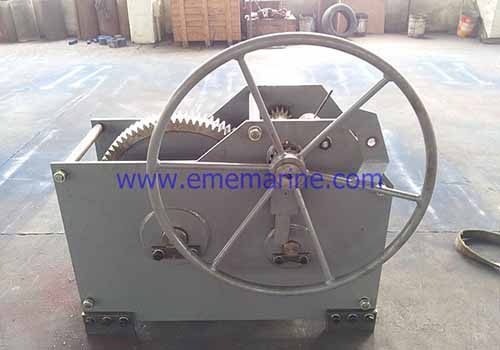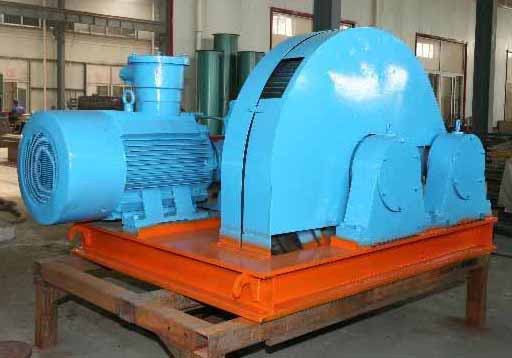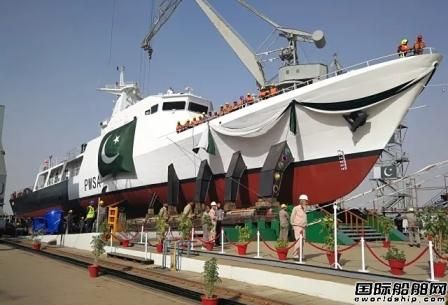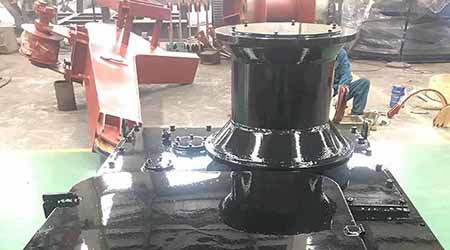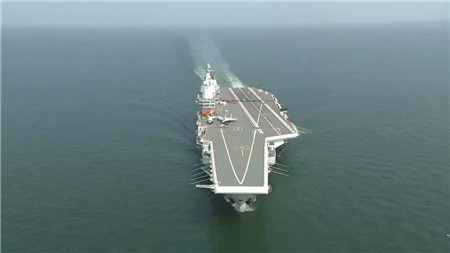
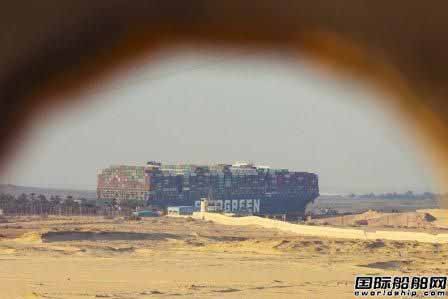
"The moment they agree to pay compensation, the boat can leave and the whole thing is closed." said Osama Rabie, director of the Suez Canal Authority.
The much-anticipated investigation into the grounding of the vessel Chang Chi is nearing completion. The parties involved have not yet finished their "tug-of-war" over the amount of compensation and the cause of the accident. The Egyptian side, convinced that the accident was a "man-made" one, has made a clear claim of nearly 6 billion dollars and officially seized the ship, including, of course, the cargo and 25 crew members.
The court awarded $900 million! Suez Canal Authority announces the seizure of the Chang Chi
On 13 April, the Director General of the Suez Canal Authority, Osama Rabie, issued a statement saying that the Authority would seize the vessel "Longchamp" after the Economic Court of the Egyptian city of Ismailia ruled that the vessel had run aground and blocked the Suez Canal for six days. The Egyptian Economic Court in Ismailia ruled that the Authority would place the ship in "preventive detention" until the owner pays US$916 million (approximately RMB 5,990 million) in compensation.
This amount includes the cost of rescuing and repairing the vessel, as well as the damage caused by the blockage of the canal. Some experts say that the ship has been detained by the Egyptian side for investigation since it ran aground, and that the court's decision may be intended to test the pressure on the ship's owner.
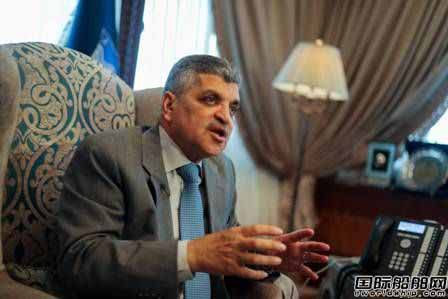
According to the Wall Street Journal, Rabie said last Thursday that the vessel would not be released until the investigation into the grounding was completed and the owner's compensation was paid. In an interview with a local Egyptian television station, he said: "The vessel will remain here until the investigation is completed and the compensation is paid. We want to speed up the agreement and the moment they agree to pay the compensation, the ship can leave and the whole thing will be closed."
At the time, Rabie said that the Suez Canal had suffered a "huge emotional toll", as well as lost freight and the cost of salvage operations. He noted that the compensation would cover the cost of the equipment and machinery used to open the channel, as well as the damage caused to the canal itself by the dredging, and pay compensation for the approximately 800 staff who rescued the 200,000-tonne vessel. The owner of the Longchamp also had to pay for the cost of blocking the canal as the accident ended up causing a massive "blockade" of over 400 ships at both ends of the canal.
According to London financial firm Revenitiv, the Egyptian government lost $95 million worth of transit fees as a result of the Suez Canal blockade.
According to the Associated Press last week, Rabie said that Egyptian officials were coordinating a settlement with the owner of the vessel, Japan's Shoei Kisen, in the hope that the whole incident would not have to go to court, although he also said in an interview that he would not rule out seeking legal proceedings.
We can either agree on some kind of compensation or go to court," Rabie said. If they decide to go to court, then the ship should be seized."
Jai Sharma, a lawyer at international law firm Clyde & Co, noted that Egypt's decision to seize the ship could affect cargo shipments and that some companies are expected to replace cargo by air. In his view, it seems surprising that the Suez Canal Authority's claim amount could be "quantified so quickly and accurately".
The maritime lawyer said that normally the shipowner would provide an agreed guarantee allowing the ship and crew to continue to sail before a final court decision, but in the present case it was clear that the Suez Canal Authority "wanted cash".
CZM negotiates for lower compensation, 'loss of reputation' claim in dispute
On 13 April, the Japanese shipowner of the Chang Chi confirmed that the Suez Canal had made a claim for compensation and would not allow the ship to leave. In an interview with the Japanese media on 14 April, Shouei Kisen said it was negotiating with the Suez Canal Authority to reduce the amount of compensation and that "it has not yet reached the stage of payment".
Previously, Shoei Steamship had said that the cost of compensation would be "covered by the insurance we have purchased". The UK P&I Club, the insurer of the vessel, responded in its latest announcement on 13 April, saying: "Despite the large amount of the claim, which was largely unsupported, the shipowner and the insurer have been negotiating in good faith with the Authority. Good faith negotiations were held and on 12 April we submitted a generous and well considered proposal to the Authority to settle the Authority's claim. We are disappointed with the Authority's decision to impound the 'Chang Chi' today."
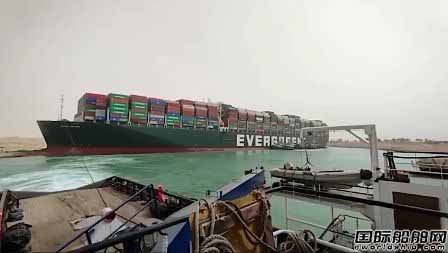
According to the United Kingdom P&I Club's announcement, the Suez Canal Authority did not provide detailed justification for its "exorbitant" claim, which consisted of a US$300 million "salvage bonus" and US$300 million for "loss of reputation". The claim for "loss of reputation" is somewhat controversial. In addition, the Suez Canal Authority's claim does not include claims for salvage services from professional salvage companies.
At present, the shipowner will continue to negotiate with the Suez Canal Authority. The United Kingdom P&I Club is working with all parties involved and the priority is to settle the claim fairly and expeditiously to secure the release of the ship and cargo and the 25 crew members.
It is understood that the UK P&I Club is a member of the International Group of P&I Clubs (P&I Club). Under the P&I Club International claims system, the UK P&I Club will cover claims up to US$10 million, with claims in excess of US$10 million being shared among the 13 members of the P&I Club International group. Claims in excess of US$100 million are settled through the International P&I Club Group's reinsurance scheme, with reinsurers covering up to US$2.1 billion and P&I Club members partially covering an additional US$1 billion in claims.
Court documents show that CZ Steamship is seeking to avoid potential cost increases, with 2 related subsidiaries of the company filing a lawsuit in the High Court in London on 1 April seeking to limit liability. As previously reported by local Egyptian media, the owner of the vessel had initially requested a 90% reduction in compensation.
"Chang Chi's charterer, Evergreen Marine's general manager, Xie Huiquan, made it clear that the company "will not be responsible for the delay" as "the delay will be covered by insurance".
"Investigation into the accident of the vessel is nearing completion, with conflicting accounts of why it ran aground
At a press conference on 12 April, Suez Canal Authority (SCA) director Osama Rabie said that the investigation into the cause of the grounding of the vessel was expected to be completed by the end of the week. In Rabie's view, the grounding of the vessel may have been due to the captain's error and the authorities "do not take any responsibility for the accident".
Rabie said, "Perhaps the captain made a mistake in a specific (manoeuvre) requirement, such as rudder or speed, which could have led to this result." Although there were two Suez Canal pilots on board at the time of the incident, Rabie said the pilots had an "advisory role" while the captain was "responsible for the operation of the vessel".
"Even if the pilot had given an order to do so, the captain had the right to change that order or to use any route or speed different from that requested by the pilot," Rabie re-emphasised: "There was no fault or responsibility on the part of the Suez Canal."
Rabie speculated that "one of the causes of the ship's accident may have been due to a technical error in responding to the captain's orders." However, the UK P&I Club stressed that at the time of the grounding, the vessel was "fully operational, without any defects in its machinery and/or equipment, and fully manned by a competent and professional captain and crew" and that "under the supervision of two Suez Canal Authority pilots, the vessel was travelling in accordance with the Suez Canal under the supervision of two Suez Canal Authority pilots, the vessel was operating in accordance with the Suez Canal navigational regulations".
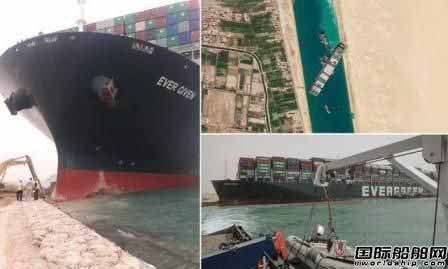
Earlier, shortly after the accident, preliminary findings suggested that the grounding may have been due to weather, with local meteorological reports of gusts of wind and dust storms in the area on March 23, with gusts of up to 50km/h. "The ship's owner, Zheng Rong Steamship, said that the ship was hit by "strong winds of 74km/h, which caused it to drift off course".
In response, Suez Canal Authority officials have said that weather was not the entire cause of the accident, and that about 12 ships had passed through the Suez Canal safely in the same weather conditions before the Chang Chi. Authority officials speculate that the accident was caused by the captain's "erroneous manoeuvres that coincided with a sandstorm and strong winds", which caused the ship's bow to deviate significantly from its course and "create a violent The ship's bow was severely off course and "swayed violently" before fully entering the Suez Canal channel, "resulting in reduced visibility and the ship running aground".
"The vessel ran aground in the Suez Canal on 23 March and was stuck in the channel for six days. Since its release on 29 March, the vessel, with its cargo and 25 Indian crew, has been anchored in the waters of the Suez Canal's Great Bitter Lake. The Suez Canal Authority launched an investigation into the incident on 31 March and the vessel will not be able to leave until the investigation is completed, and the 25 Indian crew members on board will not be allowed to change shifts for the time being.
Stephen Cotton, general secretary of the International Transport Workers' Federation (ITF), said: "The crew appear to be being treated well but we are concerned about the possibility of them being stranded."
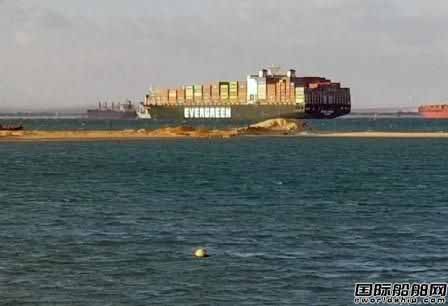
According to ISPS, the American Bureau of Shipping completed the inspection of the vessel on April 4 and issued a certificate of seaworthiness, allowing the vessel to be transferred from the Great Bitter Lake to Port Said, where she will be re-inspected before completing her voyage to Rotterdam.
Taixing Expansion Marine Equipment (EME) is the professional designer, manufacturer and exporter of mooring winch, positioning winch, towing winch, anchor winch, diesel winch, electric windlass, hydraulic windlass, diesel windlass, electric capstan, hydraulic capstan, pneumatic capstan etc. Our products are mainly for scientific research vessel, navy vessel, working barge, tug, cargo vessel, oil tanker, offshore platform etc.
